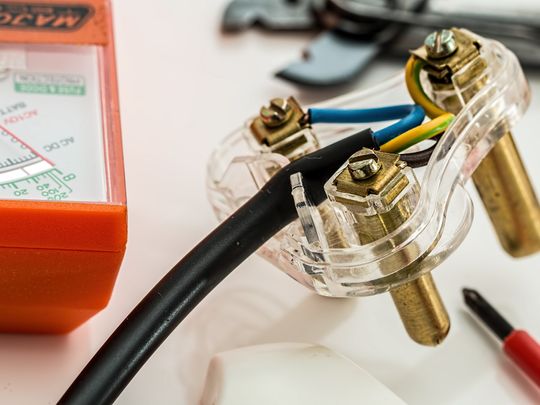
When Naseeb Jamal started bringing his daughters to his electronic repair shop in a low-income neighbourhood of Pakistan’s Karachi city, people were quick to talk ill. The idea that young girls were dealing with customers and working in a highly male dominated industry did not sit well with Jamal’s family and neighbours.
Even his mother questioned the businessman’s decision who runs a dingy repair shop for electronic appliances in Qasba Colony.
“When people saw me starting to bring my daughters to the shop, they said: ‘What would people say?’ Why do I have to care about what people say?” Jamal said in a video news report, talking to a local outlet.
The father of-nine – eight daughters and one son – didn’t pay head to the comments.
From when his children were young, Jamal made it a point to teach his daughters how to repair electronics.
“I wanted to give them these skills and they learn them with me next to them, what’s other people’s problem?” Jamal said as his daughters worked on repairing various appliances and handling customers in the background.
“This is the way to strengthen women. They should not just be educated, but skilled and allowed to go outside as well,” he was quoted as saying. “If they are skilled, they would bring more pride to their parents and country than any son,” he added.
Denouncing cultural taboos and gender discrimination, he said: “Cultural norms are in place but because they are my children, I’m responsible for their future. Society or my family will not take care of them.”
Currently, Jamal said that four of his daughters work at the shop, while two of them are happily married and two of them stay at home.
Speaking about working at the shop, one of Jamal’s daughters said: “We repair speakers, chargers, fans and more. If I ever have an issue with an appliance, I ask one of my elder sisters to help.”
Jamal said he is trying to set an example for parents across Pakistan, a country where honour killings and gender discrimination are still prevalent: “I want to show society that parents shouldn't make their daughters their weakness.”








